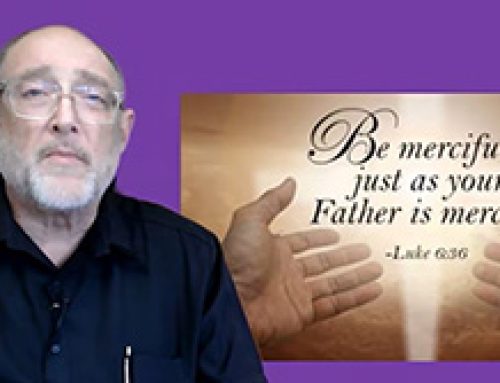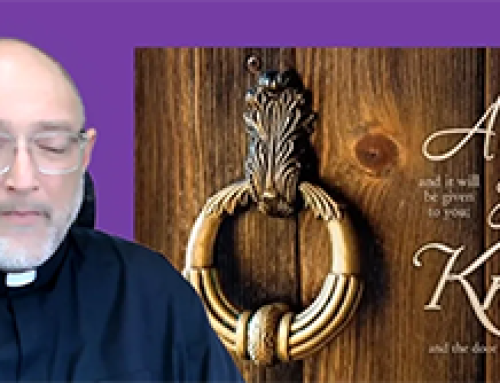Fr Paul reads the Gospel from Matthew (16: 24-28) in which Jesus says, ‘Whoever wants to be my disciple must deny themselves and take up their cross and follow me. For whoever wants to save their life will lose it, but whoever loses their life for me will find it’.Fr Paul says this is the first of three times when Jesus clearly predicts his suffering and death and, really, the disciples can’t stomach the message. Each time Jesus repeats the message for them: they, too, must share his suffering. This passage is also crucial for the understanding of Jesus’ chosen title, ‘Son of Man’. This is the only expression that Jesus will use of himself, and he alone uses it in the Gospel. Literally it means ‘human being’.In Aramaic usage of this term ‘Son of Man’, around the time of Jesus, was used as a way for people gently refer to themselves, meaning ‘I’ but not wanting to draw attention to themselves. On Jesus’ lips it has further meaning, and it could be a reference to the illustrious ‘Son of Man’ mentioned in the book of Daniel, the ‘Son of Man’ who receives all power from God. There are three occasions when this seems to be the case: Firstly, in this Gospel we’ve heard today, ‘the Son of Man is going to come in the glory of his Father with his angels’; The second time, ‘they will see the Son of Man coming on the clouds of heaven with great glory’ (Matthew 24:30); and the third time is the declaration of Jesus before the High Priest – ‘you will see the Son of Man seated at the right hand of God’ (Matthew 26:64). On these occasions, Jesus at least hints that he is the ‘Son of Man’ prophesied by Daniel who comes to the One of Great Age and receives from him all power and authority.In closing Fr Paul says, Jesus is the ‘Son of Man’ who comes to the One of Great Age and receives all power and authority. Let us turn to him today and place our needs before him.






Leave A Comment